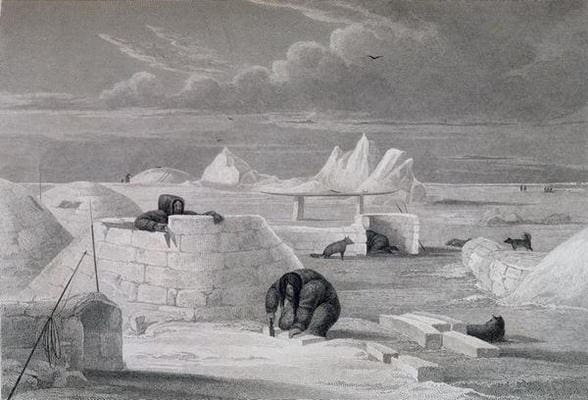
Favorite To be able to transfer subtleties of knowledge, we need subtleties of language. Image from wikimedia commons The Eskimo languages have, it is claimed, 50 words for snow (falling or lying snow, and ice). This may or may not be true, but their various words can carry a huge
Read More
 Shared by Nick Milton February 28, 2018
Shared by Nick Milton February 28, 2018
Favorite Do you pass knowledge forward, as in a relay race, or do you pass it backward, as in a rugby match? The metaphor of a relay race is often used in Knowledge Management. Knowledge is seen as a baton that is passed from a runner (project team), after they
Read More
 Shared by Nick Milton October 6, 2017
Shared by Nick Milton October 6, 2017

Favorite There is only a certain amount you can learn by reading. Sometimes you have to go and see. Watcher, by woodleywonderworks, on Flickr With complex knowledge, there is more going on that can ever be documented, and (if it’s possible) the best way to learn is to go and
Read More
 Shared by Nick Milton August 15, 2017
Shared by Nick Milton August 15, 2017
Favorite Don’t just run your community meetings as presentations; instead engage in real multi-way dialogue around important questions. Brown bag lunch, by Gloria, on Flickr I have blogged several times about Push and Pull in Knowledge Management – about the dangers of focusing only on Push (such a common strategy,
Read More
 Shared by Nick Milton July 11, 2017
Shared by Nick Milton July 11, 2017
Favorite “My knowledge is unique” is another challenge you meet on your KM journey. How do you respond? image from wikimedia commons This observation was shared with me by a knowledge manager in the UK health service, who hears it all the time from top doctors and surgeons. “Nobody can
Read More
 Shared by Nick Milton July 3, 2017
Shared by Nick Milton July 3, 2017
Favorite One of the biggest challenges in Knowledge Management is the invisible and intangible nature of Knowledge. How can we make knowledge, and knowledge gaps, visible to others? You can’t see knowledge, you can’t measure it, you can’t tell when it’s missing, other than by observing it’s effects. This makes
Read More
 Shared by Nick Milton May 26, 2017
Shared by Nick Milton May 26, 2017
Favorite Sharing knowledge is a two-sided process. There is a sharer and a receiver. Be careful that making knowledge easier to share does not make knowledge harder to re-use. Image from wikimedia commons Sharing knowledge is like passing a ball in a game of rugby, American Football or basketball. If
Read More
 Shared by Nick Milton February 16, 2017
Shared by Nick Milton February 16, 2017
![]() Shared by Nick Milton February 28, 2018
Shared by Nick Milton February 28, 2018

